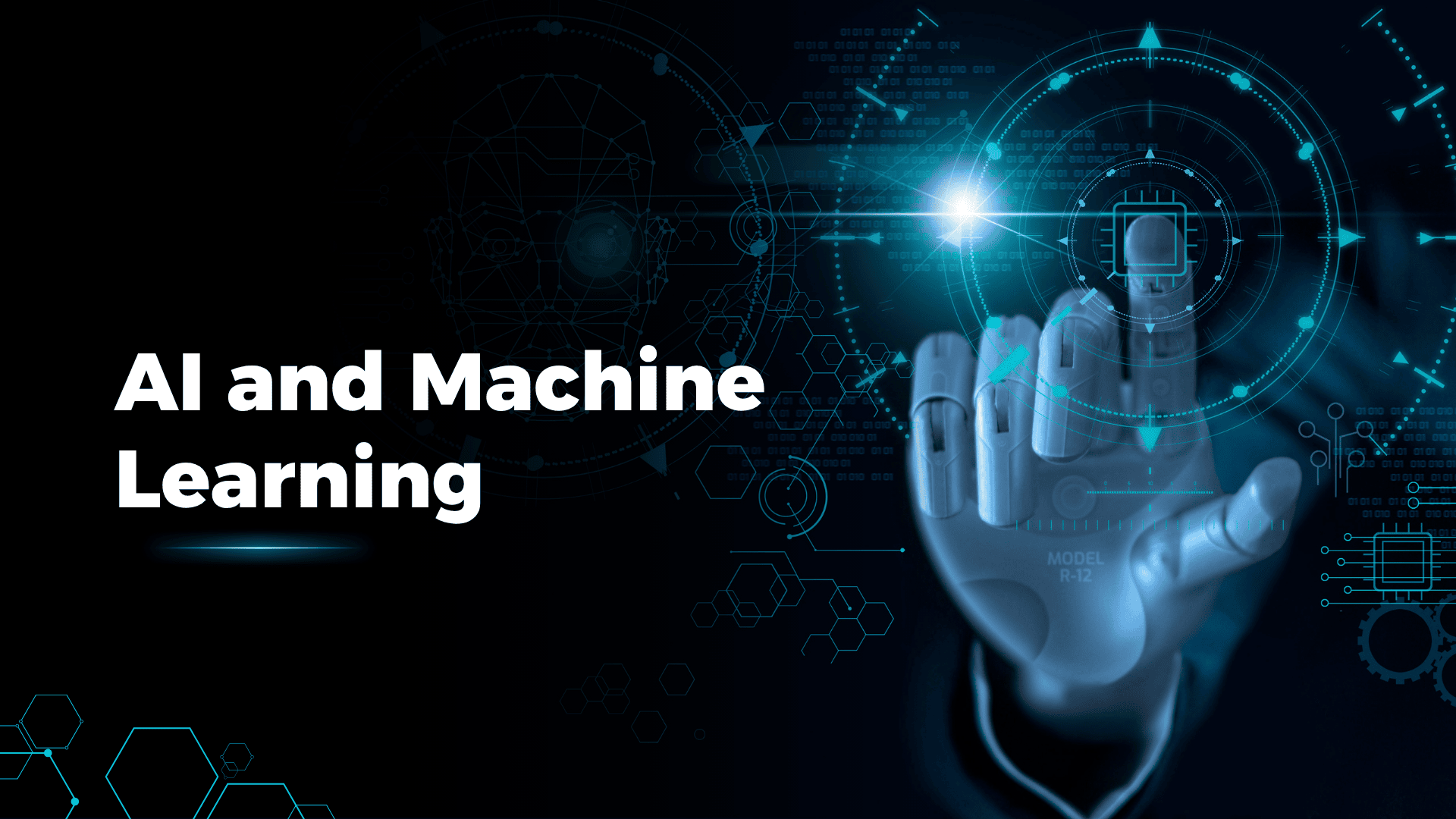Introduction
Artificial Intelligence (AI) and Machine Learning (ML) have become the core drivers of digital transformation across industries. From predictive analytics to intelligent automation, AI is revolutionizing the way businesses operate. But deploying and managing AI/ML models traditionally required massive infrastructure, skilled data scientists, and significant investment.
This is where Cloud Computing steps in.
By integrating AI and Machine Learning with cloud platforms like Microsoft Azure, Amazon Web Services (AWS), and Google Cloud, organizations can now harness powerful computational capabilities without owning any physical hardware. In this blog, we’ll explore how AI and ML in the cloud are reshaping business processes, enhancing scalability, and unlocking new opportunities for growth.
What Is AI and Machine Learning in the Cloud?
AI in the cloud refers to using cloud-based services and tools to develop, train, deploy, and scale AI and ML models. Cloud providers offer:
Pre-built AI tools (like sentiment analysis, object detection, translation, etc.)
Custom ML platforms (like Azure Machine Learning, SageMaker, or Vertex AI)
AutoML frameworks for non-coders to build models
Big data processing infrastructure such as Spark, Hadoop, or Dataflow
In short, the cloud acts as the backbone infrastructure for your AI initiatives — taking care of storage, compute power, and integration.
Benefits of Using AI and ML in the Cloud
1. Scalability and Performance
Cloud-based AI services allow you to scale up your ML models with virtually unlimited computing power. Whether you’re training a deep learning model with terabytes of data or running real-time predictions across millions of users, cloud platforms adapt automatically to your workload.
2. Cost Efficiency
Building AI infrastructure on-premise can be extremely costly. With cloud AI services, you pay-as-you-go — only for the resources you use. This eliminates upfront capital expenses and reduces operational costs.
3. Easy Deployment and Integration
Cloud AI platforms offer pre-configured environments and APIs that make it easier to deploy and integrate models into your apps, CRMs, ERPs, and websites. This accelerates the go-to-market timeline significantly.
4. Access to Pretrained Models
Platforms like Azure Cognitive Services or Google Cloud AI provide ready-to-use models for vision, language, speech, and decision-making — reducing development effort and time.
5. Security and Compliance
Cloud providers offer enterprise-grade data security, encryption, and compliance certifications (such as GDPR, HIPAA, and ISO) which are critical for AI in sensitive industries like healthcare and finance.
Top Cloud Platforms for AI and Machine Learning
1. Microsoft Azure AI
Offers Azure Machine Learning Studio for no-code model building
Supports MLOps and automated ML pipelines
Integrates with Power BI, Dynamics 365, and Microsoft Fabric
Azure Cognitive Services for prebuilt AI models
2. Amazon Web Services (AWS)
Amazon SageMaker provides end-to-end ML development
Deep Learning AMIs for custom model training
Services like Comprehend (NLP), Rekognition (vision), and Lex (chatbots)
3. Google Cloud AI
Vertex AI for unified AI/ML development
AutoML tools for non-technical users
Industry-leading in TensorFlow support
Strong integrations with Google Workspace and BigQuery
Use Cases of AI and ML in the Cloud
1. Predictive Maintenance in Manufacturing
Using ML models hosted on the cloud, manufacturers can predict equipment failures, reduce downtime, and optimize maintenance schedules. Data from IoT sensors is streamed directly to the cloud, where real-time analytics provide instant insights.
2. Personalized Customer Experiences
Retailers and eCommerce brands use cloud-based AI to analyze customer behavior, predict preferences, and offer personalized product recommendations — boosting sales and customer satisfaction.
3. Fraud Detection in Finance
Cloud ML models trained on historical transaction data can detect anomalies and flag suspicious activity in real time — significantly reducing financial fraud and risk.
4. Intelligent Chatbots and Virtual Assistants
Using cloud AI services like Dialogflow or Azure Bot Framework, businesses deploy smart virtual assistants that understand natural language, handle customer queries, and reduce support load.
5. Healthcare Diagnostics
ML models hosted in the cloud are being used to analyze X-rays, MRIs, and pathology reports, assisting doctors in faster and more accurate diagnosis.
Challenges in Implementing AI/ML in the Cloud
While the benefits are immense, implementing cloud-based AI does come with some challenges:
Data privacy concerns when transferring sensitive data to cloud
Latency issues for real-time applications if data centers are far
Vendor lock-in if too tightly coupled with one cloud provider
Need for skilled professionals to manage cloud + AI ecosystems
Future Trends in Cloud-Based AI
1. AI-as-a-Service (AIaaS)
More businesses are now consuming AI just like SaaS — using prebuilt models via APIs. This democratizes AI access, even for small businesses.
2. MLOps Integration
Cloud platforms are investing heavily in MLOps — tools and practices that bring DevOps principles to Machine Learning. This ensures model quality, versioning, deployment, and monitoring.
3. Edge AI
With advancements in 5G and IoT, cloud AI is now extending to the edge — allowing real-time AI decisions closer to the data source, even without internet.
4. Ethical AI Governance
Cloud providers are embedding fairness, transparency, and bias detection tools within their AI services to ensure ethical AI deployment.
Conclusion
The convergence of AI, Machine Learning, and Cloud Computing is no longer a futuristic concept — it’s happening right now, reshaping every industry from retail to healthcare to logistics. With cloud platforms offering accessible and scalable AI capabilities, businesses of all sizes can now leverage data-driven intelligence to gain a competitive edge.
Whether you’re just starting your AI journey or looking to optimize existing processes, the cloud offers the flexibility, performance, and tools you need to succeed.







